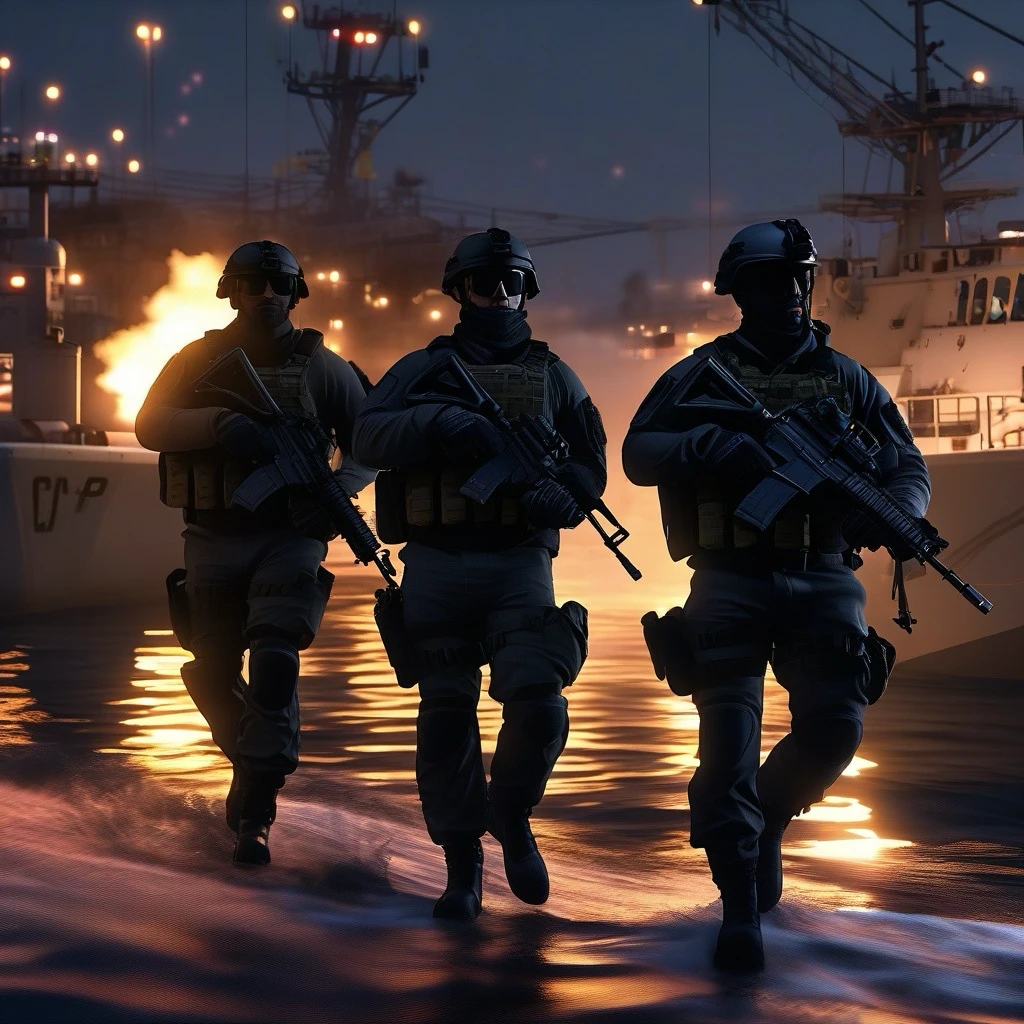Kuwait Military Defense Lawyers – UCMJ Defense Attorneys
Professional UCMJ & Court-Martial Defense for U.S. Service Members in Kuwait
Kuwait is a key staging ground for U.S. military operations in the Middle East. Bases such as Camp Arifjan, Ali Al Salem Air Base, Camp Buehring, Camp Patriot, and the SeaPort of Debarkation (SPOD) support troops moving into and out of Iraq, Syria, and Afghanistan. With thousands of Soldiers, Sailors, Marines, Airmen, and Guardians rotating through Kuwait, the potential for allegations of misconduct is high. Accusations can quickly derail careers and harm operational readiness.
Gonzalez & Waddington, Attorneys at Law has defended service members in Kuwait since early operations in the Persian Gulf. Our attorneys understand the U.S.–Kuwait Defense Cooperation Agreement, Kuwaiti law, and how rapidly U.S. commanders react when accusations arise. We provide aggressive court-martial defense to protect service members’ rights, reputations, and careers.
Why Allegations in Kuwait Are Urgent
Because Kuwait is an integral part of U.S. force projection, allegations are taken seriously. Commands act quickly to avoid negative publicity and protect diplomatic relationships.
- Kuwaiti police may detain U.S. personnel for off-base incidents; harsh penalties can follow under local law
- Commands impose immediate liberty restrictions, movement bans, and curfews when allegations surface
- Investigations involve multiple agencies (CID, NCIS, OSI) and sometimes Kuwaiti prosecutors
- Security clearances and deployment duties are suspended instantly, harming career progression
- Administrative separation boards are initiated swiftly to remove service members with minimal evidence
- Media coverage of incidents in the region can influence command decisions
To protect your rights, you need legal counsel from the moment accusations arise.
Common UCMJ Charges and Administrative Actions in Kuwait
Service members in Kuwait often face the following accusations and actions:
- Article 120 (Sexual Assault/Rape) – Allegations can arise from social interactions on base or off post; convictions result in severe penalties
- Article 128b (Domestic Violence) – Domestic incidents quickly involve CID and local law enforcement
- Article 112a (Drug Use/Distribution) – Kuwait has zero tolerance for drugs; even small amounts result in major legal consequences
- Article 92 (Failure to Obey Orders) – Violations include fraternization, curfew breaches, or ignoring command policies
- Article 121 (Larceny/Fraud) – Misuse of travel cards, allowances, or theft from units triggers severe punishment
- Article 134 (General Misconduct) – Covers adultery, online misconduct, indecent conduct, or behavior that offends local customs
- Administrative Separation Boards/BOIs – Commands use them to remove members quickly; the burden of proof is lower than in a court-martial
- Security Clearance Suspensions – Immediate and potentially permanent if not challenged
Defense Strategies for Kuwait-Based Cases
Our defense strategies are tailored to Kuwait’s unique legal environment and mission-critical roles:
- Ensuring Kuwaiti evidence meets U.S. legal standards and challenging any SOFA violations
- Finding inconsistencies in accuser testimony and demonstrating ulterior motives
- Using digital forensics to reconstruct events and disprove allegations
- Working with cultural experts to show misunderstandings between service members and Kuwaiti civilians
- Exposing command bias and external political pressure on administrative boards
- Creating comprehensive appeals for administrative separations and security clearance suspensions
Why Select Gonzalez & Waddington in Kuwait
Service members in Kuwait choose us because we have extensive experience defending cases in the Middle East. We know how to protect rights under challenging conditions and win in court-martial and administrative settings.
- More than 20 years of successful UCMJ defense worldwide
- Former JAG attorney familiar with CENTCOM operations and Middle Eastern law
- Authors of authoritative texts on cross-examination and trial advocacy
- Renowned for aggressive, effective defense even in politically charged environments
- Knowledgeable about U.S.–Kuwait legal agreements and host-nation procedures
Contact Our Kuwait Military Defense Lawyers & Court Martial Attorneys
If you face UCMJ accusations in Kuwait, time is critical. Contact our firm immediately to ensure your rights and career are protected. Investigators and commanders move quickly; you must act faster.
➤ Contact Gonzalez & Waddington for a Confidential Consultation
Kuwait Military Defense Lawyers – UCMJ Defense Attorneys – Frequently Asked Questions
Do Kuwaiti authorities have jurisdiction over U.S. service members?
Yes. Under SOFA agreements, Kuwaiti police may investigate off-base incidents and prosecute service members. Unique military offenses remain under U.S. jurisdiction. A lawyer who understands both systems is essential to protect your rights.
Should I talk to investigators without a lawyer in Kuwait?
No. Politely decline and request counsel. Investigators may assume guilt early in a politically sensitive environment. Anything you say can be used against you by both U.S. and Kuwaiti prosecutors.
What accusations are common for service members in Kuwait?
Common accusations include sexual assault, domestic disputes, drug offenses, larceny, fraud, fraternization, online misconduct, and violating curfews or orders. Cultural misunderstandings can also lead to allegations.
Can administrative separations end my career in Kuwait?
Yes. Commands frequently rely on administrative separations, BOIs, reprimands, and clearance suspensions to remove service members quickly. Without a strong defense, these actions can destroy your career and benefits.
Who are Michael and Alexandra Gonzalez‑Waddington?
They are internationally renowned military defense lawyers known for winning complex UCMJ cases throughout the Middle East, Europe, and worldwide. Their firm is known for strategic, aggressive trial advocacy that protects service members’ rights and careers.


